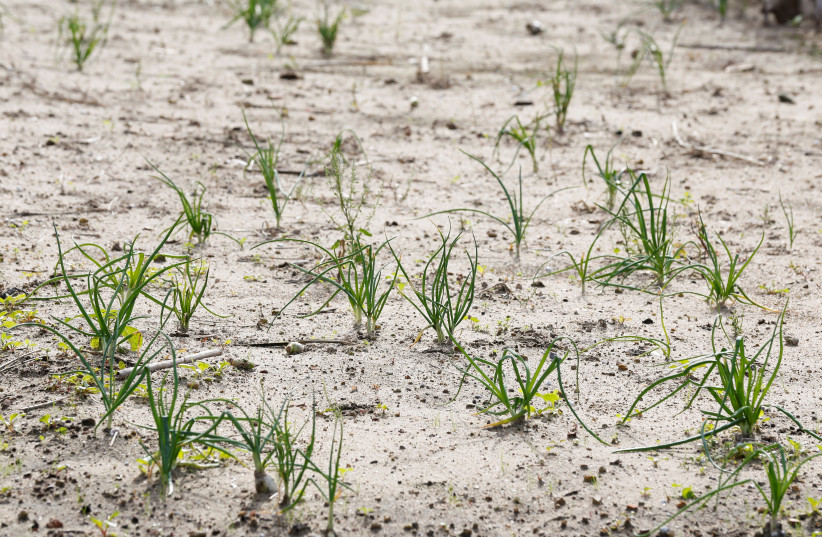The war on multiple fronts is not preventing Israel from taking part in the fight against climate change, according to ambassador Gideon Behar, Israel’s special envoy for climate change and sustainability.
Behar is leading the Jerusalem delegation at the 29th United Nations Climate Change Conference, COP29. The event is taking place in Baku, Azerbaijan, between November 11 and November 22.
“Climate change continues to happen, and it is important that Israel remains part of the efforts to mitigate the effects of climate change,” Behar said. “We have a lot to contribute to the cause.”
As every year seems to set a new record for the hottest ever, Behar highlighted how different areas of intervention can help humanity navigate the new challenges, including reducing emissions, coping with the tangible effects of global warming that are already impacting the world, and strengthening food security.
“Because of our history, Israel is a global superpower in climate innovation,” said Behar. “Since our country’s establishment, we have been faced with droughts and water scarcity. Yet, we developed amazing water technology and a flourishing agriculture sector in arid and semi-arid areas.

“We can offer the world many solutions to help the world move into a new phase by both minimizing our impact on the climate and biodiversity and absorbing the shocks of climate change. Israel can truly make the planet a better place.”
Enhancing crop resilience
For 2024, Israel’s delegation includes a group of 20 start-ups selected by the Israel Innovation Authority and Israel Export and International Cooperation Institute, which will have the opportunity to present their core technologies in a variety of sectors, including energy, water, agriculture, sustainable manufacturing, sustainable construction, food tech, transportation, circularity, waste management, and carbon capture.
Salicrop, for example, focuses on enhancing the resilience of crops in the face of climate change. By using a non-GMO seed enhancement, Salicrop enables field crops to thrive despite phenomena such as drought, salinity, and extreme temperatures.
Another start-up, H2OLL, goes even further, offering a technology – developed at the Technion-Israel Institute of Technology – capable of extracting water from thin air even in the middle of the desert. By running the air through liquid salt, H2OLL collects water vapor. One of their devices currently provides 1,000 liter/day of water in a school in the Israeli desert.
“Israel also holds the world’s record in wastewater treatment or purification,” Behar added. “We treat over 95% of our wastewater, and most are used again in agriculture. In addition, our water infrastructure wastes only a few percentage points of water, which is unique. In some countries, over 50% of the water is lost through the pipes.”
Some start-ups showcased at COP29 feature technology that focuses on water purification, such as BlueGreen, which eliminates and prevents toxic algal blooms, restoring the natural ecological balance in lakes and reservoirs.
On Thursday, the Israeli pavilion will host the event “Discovering Tomorrow’s Climate Tech Today,” and all the start-ups will present their solutions to environmental challenges.
ISRAEL IS also experiencing the effects of global warming. The past summer was the hottest the country has ever recorded since monitoring of temperatures began. At the same time, 2023 was rated the second to third-hottest year, according to the Israel Meteorological Service.
However, Israel is struggling to reduce its own emissions. According to a report by the Environmental Ministry released in July, only 25% of the policy measures determined in 2022 to lower emissions and pollution have been implemented.
“We have ratified the Paris Agreement, so we are part of the international efforts to become net zero emissions, committing to do so by 2050,” Behar said.
“Indeed, there are difficulties along the way, but things are being done,” he added. “Despite the war, I am seeing initiatives to increase the use of solar power and good plans for the transportation sector, while we have shut down most of our coal facilities.”
Asked about the environmental effects of the war in Gaza and Lebanon, the ambassador said, “Of course, the war does have negative effects on the environment, and the competent authorities in Israel are looking into it.”
Behar stressed the importance of regional cooperation to solve the climate crisis.
“Our whole region needs to become climate resilient because we are all impacted by the phenomena,” he said. “Let us consider the issue of sea level rise. The rise in sea level is accelerating; today, it is happening three times faster than three decades ago. Therefore, I think it makes sense to cooperate with all the Mediterranean Basin countries to develop a preparedness plan. This is one of the initiatives we are advancing.”
In the past, Behar served as Israel’s ambassador to Senegal and has witnessed firsthand the critical impact of cooperation in the environmental sector.
“During my tenure, we established 15 agricultural projects in Senegal that focused on improving agricultural yields,” he said. “They made a difference in the livelihood of people there. Before our engagement, the farmers relied only on one rainy season yearly. Once we started doing drip irrigation, they had three, instead of one season of crops.”
The ambassador also highlighted the importance of walking the walk even in his personal life.
“I live in Modi’in, and I grow pesticide-free vegetables and fruit trees in my garden,” he said. “I produce my own compost, recycle, and do not use any chemicals. This attracts a high amount of insects and birds. The garden has become a form of oasis. In addition, I take public transportation as much as possible and produce minimal amounts of trash.”
“I believe that it is important that each of us does its best to help the environment, even if it’s on a small scale,” he concluded.
